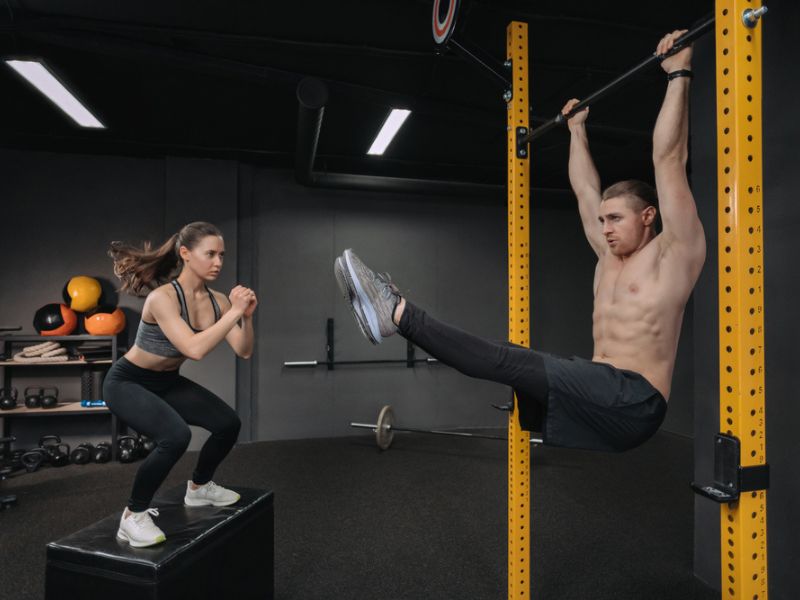Exercising is often associated with pushing yourself to the limit, running miles on end, or doing intense strength training. Similarly, low-intensity workouts can also be beneficial, like walking, hiking, swimming, yoga, resistance training, cycling, or elliptical riding.
Brian Nunez, a performance coach, said, “Low-intensity training is when you are training between 57 to 63% of your maximum heart rate for a sustained period of 30 minutes or more.”
A steady, regular pace is preferred over high-intensity interval training, which alternates intervals of maximum effort with rest.

Image Credit: Shutterstock/Arsenii Palivoda
Nunez said low-intensity workouts could provide the cardiovascular benefits of high-intensity fitness without causing joint stress. Exercises like these can be done after another workout as a cooldown or to maintain body activity between more complex movements.
Nunez said, “Low-intensity training is also great for people starting or those coming back from a long break of working out.”
Here are some reasons to try a low-intensity workout:
It Will Increase Your Brain Activity
Dylan Knight, personal trainer, “Low-intensity exercise is showing positive side effects in improving all sorts of mental illnesses and cognitive dysfunctions.”
Researchers at Germany’s University Hospital Bonn studied the effects of both high- and low-intensity exercises.
Knight said, “A high-intensity exercise improved emotional intelligence, while a low-intensity exercise improved cognition and attention levels.”
It Can Relieve Stiffness
“A regular, steady pace of exercise can help relieve stiffness, pain, and injury to joints and muscles,” Domi said.
If you are inactive for a while, you may experience stiffness. Exercise that keeps the muscles and joints moving can help in this situation.

Image Credit: Shutterstock/Maridav
It May Improve Your Balance
Studies have linked low-intensity workouts to an improvement in balance.
Abi Fernandez, a registered nurse and musculoskeletal said, “With poor balance, your joints will take a lot of strain to keep you from falling, but weak muscles will not be able to react quickly enough to create strength or hold strong positions.”
She said, in this instance, your body finds ways to cheat this weakness. You can train the stability and balance systems when you do slow exercises, such as Tree Pose in yoga or lateral step-ups in the gym.